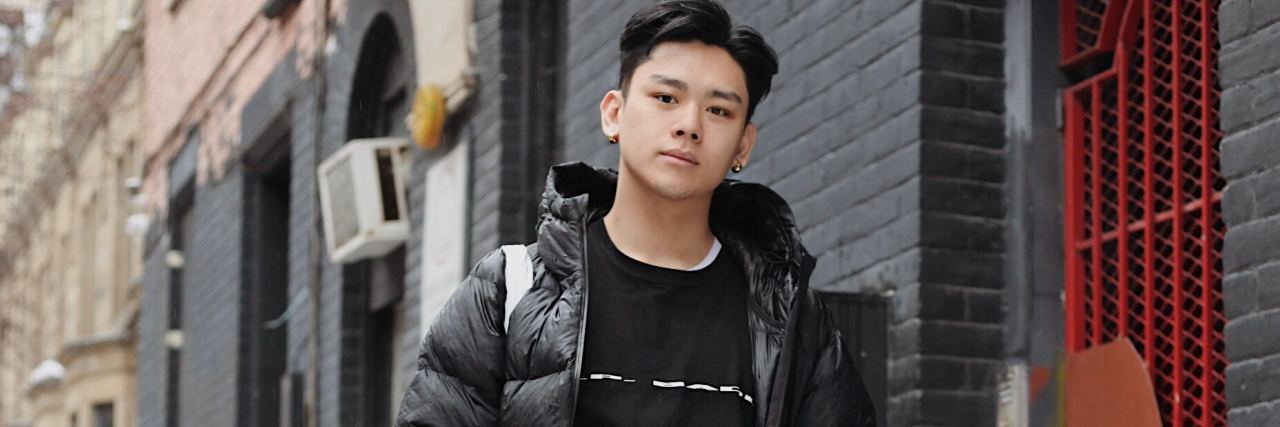This Cultural Norm Affected My Mental Health as an Asian American With Chronic Illness
Mental health is a huge struggle for many living with chronic illness, but there is a particular struggle for Chinese Americans because of the custom of “mianzi.”
Cultural Norms
According to the University of Manitoba, inflammatory bowel disease (IBD) treatment often results in a deterioration of the patient’s mental health. Patients face treatment-related body changes and the psychiatric side effects of corticosteroids, among other complications. But articles like these do not consider what happens beyond the pillbox.
What are the norms of my culture? How do they impact my mental health? How does bullying affect me? According to the Centers for Disease Control and Prevention (CDC), only 3.1% of non-Hispanic Asians were clinically depressed, approximately two times less than non-Hispanic whites (7.9%). The gaping disparity is unsettling. Here’s why. Low access to mental health resources in Asian American communities leaves mental illnesses undiagnosed. So many go through life without being treated for depression. Asian American culture can explain these low levels of access. The cultural stigma associated with depression discourages us from seeking help.
Asian Americans with IBD live at a difficult crossroad of IBD and stigmatized mental health. Some common examples of mental health jokes/remarks in the Asian American community are:
“Ooooh I’m depressed! I need an asylum! Oh no!”
“That person basically is bipolar.”
“Charge me a group rate for this therapy session! I have multiple personalities!”
“Why are you r*tarded? Are you depressed? Stop being depressed!”
These comments I heard in the Asian American community created an environment hostile to neurodiversity. Moreover, they stigmatize mental health, making illnesses like depression unacceptable. While the mockery tends to be directed to a general crowd, it isolates those who struggle with their mental health. As someone whose IBD affected their mental health, these comments keep everyone unaware of mental health concerns that plague people.
Mianzi, or “Saving Face”
Immature jokes are not the only cause. This mental health stigma also stems from mianzi, a concept that originates from Chinese culture and means “saving face.”
Mocking mental illness prioritizes pretense over honesty, creating more pain for those who struggle. In fact, pretending became a survival mechanism in order to avoid bullying. For example, I refused to tell anyone about potential mental health concerns right after my diagnosis for the fear of becoming a social outcast. My emotions piled on top of each other, threatening to explode at any moment. Silence was already the norm in my Asian American community no matter how detrimental it might be.
Unfortunately, social survival comes at the expense of perpetuating the stigma. The more we keep silent, the more the ignorance around mental health will linger. No one would ever be aware of any struggles that Asian Americans with mental health challenges would face.
“Saving face” also created a false sense of pride: I was somehow better than others who were honest about their mental health. My ego overtook the reality that seeking help was necessary. Outside, I fantasized of a world in which I was “normal.” Keeping silent also harmed my mental health. I appear strong, but I am actually weak. I seem fine, but I really am not. Hence, tensions between facade and reality begin to grow, creating knots of anxiety in my stomach. Each question I asked added one more insecurity. How much longer must I keep this up? How do I keep this up? Where was this shame coming from?
Mental Health, IBD and Asian American Identity
Because I have diarrhea from my IBD, I was allowed to go to the bathroom without permission. Unfortunately, others did not understand.
One day, I walked out of the bathroom, and a boy confronted me: “Why are you going to the bathroom so frequently? Get out of there and actually start asking before you go.”
Others chimed in on his criticism, and my cheeks turned scarlet red. Disregarding these comments was the best I could do to fulfill mianzi. Unfortunately, I became angrier but did not know the cause. The more I was bullied, the more my mental health deteriorated. At first, I saw it as a just punishment for being sick, so I told no one. Emotions began curling up like snakes inside me, eating away at me. As a result, I became furious at random things. Projection was the only solution, which established a vicious cycle. Mianzi ravaged my mental health, which fed into my IBD, which fed into mianzi. And the cycle kept going. Within this cycle, I kept denying that there was any linkage between the three for years; it was too much for my brain to handle.
Mianzi prevented me from seeing that my able-bodied, healthy classmates should not bully me for my IBD. I began to blame the disease and my doctor for making me fat and ugly. The standards of Asian America perpetuated my silence. It was better to look fine than to feel good. Apparently, the rules of mental health operate differently from mianzi.
Photo by Good Faces on Unsplash

